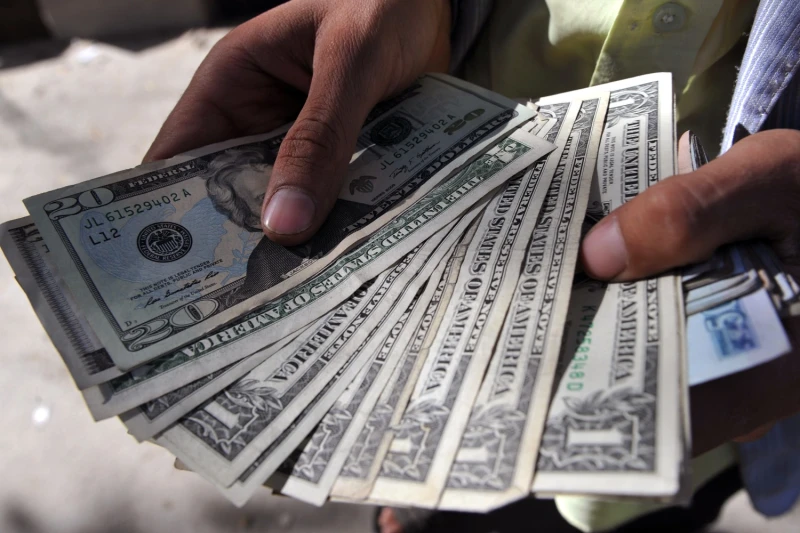
THE economy is edging closer to full dollarisation amid reports that the informal sector is rejecting the dual pricing regime, exclusively selling in the United States dollar.
Latest figures released by the Zimbabwe National Statistics Agency (ZimStat) yesterday, showed that 83% of transactions on key food purchases at national level were done in United States dollars.
“Data on currency of transaction for key food items such as maize meal, cooking oil, rice, beef and bread were also collected. At national level, about 83 of the transactions on key food purchases were in US dollars,” the ZimStat report read.
“The use of US dollars on key food purchases transactions was higher in rural areas (85,6%) than in urban areas (80,1%).”
The remaining 17% of key food purchases at national level, according to ZimStats, were conducted in Zimdollar (ZWL$) and South African rand (ZAR) with 6,4% carried out in both USD and ZAR.
A further 5,4% of the transactions were carried out using the Zimdollar and US$ while 1,7% was done only in ZWL with 3,4% carried out using all the currencies thus US$, local currency and the rand.
The increased use of the dollar comes as Finance, Economic Development and Investment Promotion deputy minister Kudakwashe Mnangagwa told Parliament on Wednesday that the government was aware that the informal sector was rejecting the dual pricing regime.
He was responding to legislators’ inquiries during that question and answer session on Wednesday this week.
- Mthuli Ncube abandons struggling consumers
- Government moves to cushion pensioners
- Village Rhapsody: Zanu PF must commit to peaceful transition in 2023
- Could genomics bring answers to the Siyachitema Covid-19 bloodbath?
Keep Reading
Mnangagwa said the government policy and law allowed shops, retailers and industry to display the prices and the currencies of their choice, whether US$ or the local currency.
“So in that regard, if there is any rejection, it would be counter to the law, but you would find that this phenomenon is occurring probably in the informal sector.
“In more formalised shops, you have both the US$ and ZWL$ pricing, it then comes back to the initial affliction that we have which is the inflation and exchange rate disparities that are creating some of these issues.
“Let me repeat that the multi-currency regime draws us back to the fact that we need to compare our currency to other currencies and this is going to come out during the presentations that are going to be done soon in the monetary policy which is under the purview of the Reserve Bank of Zimbabwe,” Mnangagwa said.
He said the raft of measures being crafted would deal with fundamental issues which include the preservation of value of the local currency.
Mnangagwa said the government was also aware of the practice by retailers and shops of disconnecting point of sale machines to avoid payment in local currency.
He said this informed the government to come up with a cocktail of measures that ensured the preservation of value of the local currency.
The Zimdollar has been depreciating sharply against major currencies on low confidence. The depreciation has pushed up the prices of basic commodities.
The Zimdollar is trading at 1:10 927 against the US$ on the official market, 1:14 000 in supermarkets and 1:16 000 on the parallel market.
The Consumer Council of Zimbabwe this week revealed that the family basket had doubled to ZWL$6,2 million from ZWL$3,6 million in December due to the continued depreciation of the Zimdollar.
President Emmerson Mnangagwa told the first Cabinet meeting of 2024 this week that the government would soon introduce a raft of policy measures to arrest price increases, stabilise the foreign exchange rate and ultimately maintain the value of the Zimbabwe dollar.
However, economist Vince Musewe said the government should first address issues that erode confidence in the local currency.
“Price instability is a result of many issues including the political environment. When people do not have confidence in a system they seek value in the US dollar,” he said.
“You cannot legislate or control people's psychological perceptions. You have to implement stable policies and deal with all the issues that erode confidence which include corruption, patronage and political persecutions.”







